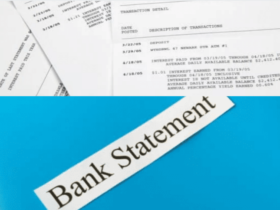5 Successful Keys to Managing Your Personal Finances? The term “personal finance” refers to how you manage your money and make plans for your future.
All your financial decisions and activities have an impact on your financial health.
It is important to consider what we should do – in general- to help improve our financial health and habits.
“Personal finance” is often an intimidating term that causes people to avoid planning, which can lead to poor decisions and poor results.
Take time to budget your income versus expenses, so that you can spend within your means and manage lifestyle expectations.
Here we discuss 5 Successful Keys to Managing Your Personal Finance books rules that can help get you on track to achieve specific financial goals.
5 Successful Keys to Managing Your Personal Finances
1. Detail Your Financial Goals
The first thing you should do is to write specific goals about what you want to do with your life and money. Finance can affect many different areas of your life.
Take some time to write specific, long-term financial goals. You may want to travel a month in Europe, buy an investment property, or retire early.
All these goals will affect how you plan your finances. For example, your goal of retiring early depends on how much you save your money now.
Once you write down your financial goals, prioritize them. This organizational process ensures that you are paying the most attention to the people who mean the most to you.
You can also list them in the order you want to achieve them, but for a long-term goal such as saving for retirement, you have to work towards this while working on your other goals.
2. Make your plan
A financial plan is necessary to help them reach their financial goals. The plan should have several stages or milestones.
A sample plan may include creating a monthly budget and spending the plan, then getting out of debt.
Once you complete these three things, you have freed up some major cash, and you can use the money that is released from your debt payments to reach these goals.
Again, it is important to decide which priorities are most important to you. Continually work towards your long-term retirement goals, but also start focusing on the most important near-term goals you set for yourself.
Keep these things in mind when making a financial plan:
- Your budget is the key to success.
- You should continue to contribute to long-term goals, such as saving for retirement, no matter your financial planning phase.
- The creation of an emergency fund is another important factor in financial success and stress reduction.
3. Stick to Your Budget
Your budget is one of the biggest tools that will help you succeed financially. This allows you to create a spending plan so that you can divide your money in a way that will help you reach your goals.
A budget lets you decide how to spend your money. Without a plan, you can spend your money on things that are not important to you, but you want at the moment, and then wonder why you are not reaching the financial milestones set for yourself.
You can make your budget as high-level or broad-based as you want, as long as it helps you spend less than you earn, pay off any debt, pay your emergency funds, and save for the future. Helps to reach your end goal.
You should have a budget even after you are out of debt. It is easier to spend more than you spent, and if you stop tracking your spending, you can slide back into debt.
READ ALSO: What Is Net Income And How it Works?
4. Pay off debt Managing Your Personal Finances
Debt is a major obstacle for many people to reach financial goals. Therefore you should make it a priority to eliminate.
Set up a debt elimination plan, which will help you pay it off more quickly. When making minimum payments on all your loan accounts, pay any additional funds towards one loan at a time.
After paying off a loan account, transfer all the money you’ve previously borrowed for the next loan and continue from there, causing the loan-payment “snowball effect”.
Once you are completely out of debt, commit to staying out of debt. Leaving a credit card at home can be a wise strategy. Save an emergency fund to cover unexpected expenses, so that you are not tempted to use a credit card to cover them.
5. Don’t Be Afraid to Ask for Advice for Managing Your Personal Finances
Once you have increased your savings and want to start investing to increase your wealth, talk to a financial planner to help you make wise investment decisions.
A good advisor will share the risks involved in each investment and help you find products that match your level of comfort and require returns. While helping you work towards your goals as quickly as possible.
A financial planner can also help you with your budget, which is another plus.
It does not have to be a difficult experience to pay off your debts, save money. And progress towards your financial goals. Invest in yourself and your financial future so that you never have to worry about your finances. Managing Your Personal Finances
Frequently Asked Questions
Q. What is the key to success in personal finance?
Ans: Set long-term goals such as getting out of debt, buying a home, or retiring early. These goals are different from your short-term goals such as saving for a good date night. Set short-term goals, such as following a budget, reducing your spending, not paying, or using your credit card.
Q. How do you manage your personal finance?
Ans:
- Devise a budget.
- Create an emergency fund.
- Limit debt.
- Use credit cards wisely.
- Monitor your credit score.
- Consider your family.
- Pay off student loans.
- Plan (and save) for retirement.
Q. Should I use Quicken or Mint?
Ans: Quick has a lot of functionality and can grow with you over time. But for some, maybe Mint is all you need. If you want a service that is available online through a web browser or app, peppermint is a better service for that purpose. Both Mint and Quick are designed to show you how and where you spend your money.








